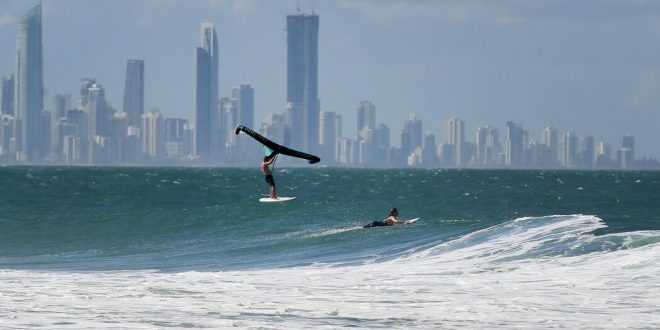The Australia Letter is a weekly newsletter from our Australia bureau. Sign up to get it by email. This week’s issue is written by Manan Luthra, an intern with the Australia bureau.
If during the last two years you thought of leaving your locked-down Australian city for the freedom of a country town, you weren’t alone. A report released last week by the Regional Australia Institute found that in 2020 and 2021, net migration from state capitals to regional areas was more than twice as high as in 2018 and 2019.
Beachside towns in Queensland were the destinations of choice, with the surfing communities of the Gold Coast and Sunshine Coast the most popular. Sydney and Melbourne lost the most inhabitants; across the country, the main reasons given were the Covid-19 pandemic and the flexible working arrangements that came with it. (The report, based on customer data provided by a bank, described the changing migration trends in percentage terms, but it did not release the underlying numbers.)
Having lived in Sydney for the past two years, subjected to restrictions as harsh as not being allowed more than three miles from my house, the appeal of moving to a town with fewer people, a lower risk of transmission and more personal space was obvious to me. For my acquaintances in Melbourne, who endured six lockdowns in two years, that appeal was equally evident, if not more so.
But now, “Fortress Australia” is open. Travelers from other countries began arriving again on Monday; the rules around mask-wearing, social distancing and vaccine passports are being relaxed; and the most populated Australian states are now encouraging workers to return to their offices. Where, then, does that leave Australia’s new regional migrants? Will those who left major cities start to return, and if not, what will it take to bring them back?
For Geoffrey Zach, a chartered accountant, it would take a lot. In April 2021, he, his wife and their 1-year-old son moved to Milawa, a town three hours’ drive from Melbourne.
They’d been seeking a home that was both spacious and affordable — his wife was expecting their second child — and a good job offer in the area made it an easy decision. Between government-imposed lockdowns (even in Milawa) and life with a newborn, Mr. Zach still doesn’t feel settled there, but the family enjoys the country lifestyle and they don’t plan to leave any time soon.
“Some things you miss are the availability of services and things like shopping, which is limited as compared to Melbourne, but we enjoy the easier commute, the fresh air and the great food,” he said. “It’s things like that, as well as Melbourne’s infrastructure issues and high housing costs, that makes me say we will be staying here.”
Such sentiments are shared by Sally Judson, who during the pandemic moved from Sydney, where she went to university, to Bogan Gate, the New South Wales village where she grew up, and back again. She’s stayed in Sydney since November because of an internship, but she hopes to spend more time in Bogan Gate in the future, when she is further along in her legal career. She said “the beauty of regional Australia, the passion of its communities and the opportunity to be back on the family farm” drew her back home.
Whether such Australians’ affection for small-town living will outlast the Covid crisis, during which domestic tourism was strongly encouraged and work-from-home requirements strictly enforced, is uncertain. Liz Allen, a demographer and lecturer at the Australian National University, said that “for some emigrants, life is better beyond the city limits, and they will likely not return.
“But cities in Australia will soon begin to see Covid emigration reverse,” she continued. “Cities will again be a desirable place to live, not necessarily because of what they offer, but because of what regional areas do not: higher education, health care, employment opportunities, quality of life.”
So what should we think about Australia’s Covid migration? Does it suggest a long-lasting trend?
To Dr. Allen, no.
“As time moves on, cities will again have major pull,” she said. “Over the next three years, the trend in migration away from cities will become a blip, relegated to Australia’s demographic history.”
Now for the stories of the week:
 Top Naija News – Nigeria News, Nigerian News & Top Stories Top Naija News – Nigerian Newspapers, Nigerian News. topnaijanews is a daily Nigerian newspaper covering Latest News, Breaking News, Entertainment, Sports, Lifestyle and Politics.
Top Naija News – Nigeria News, Nigerian News & Top Stories Top Naija News – Nigerian Newspapers, Nigerian News. topnaijanews is a daily Nigerian newspaper covering Latest News, Breaking News, Entertainment, Sports, Lifestyle and Politics.




